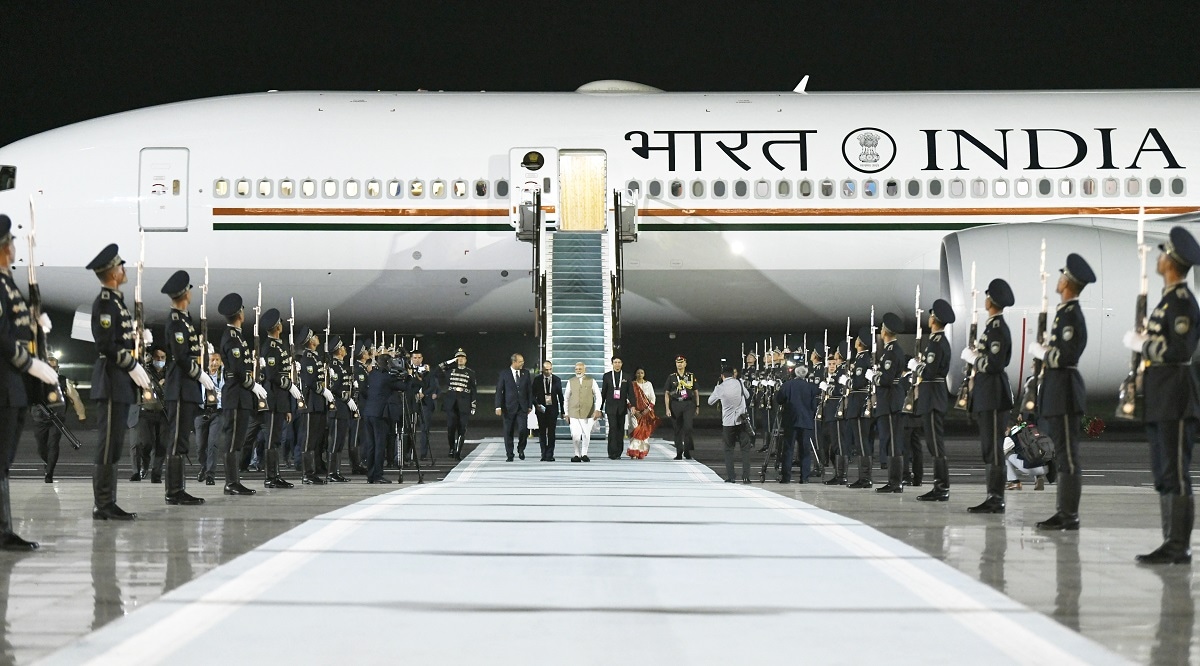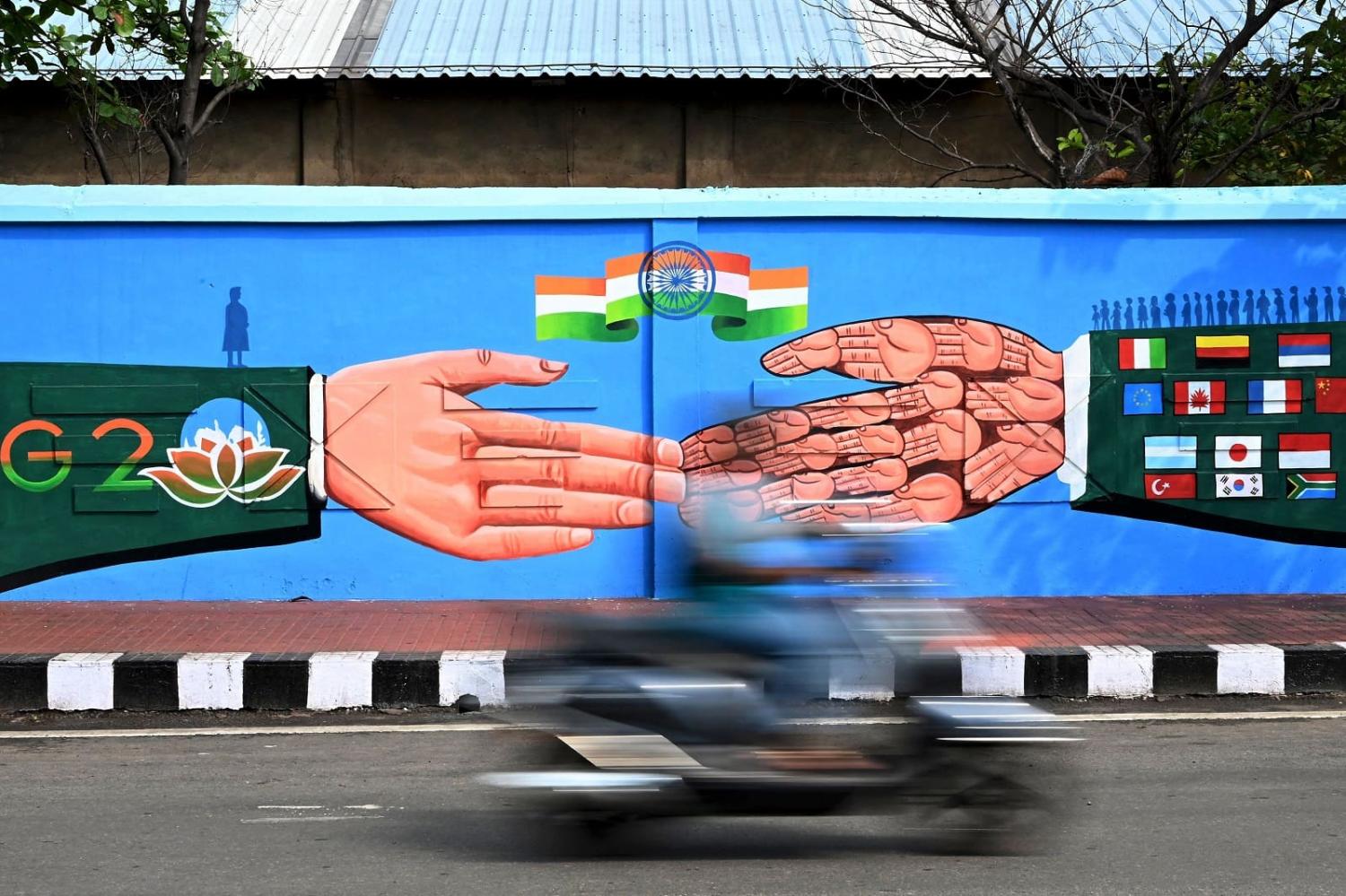Multilateralism functions when great powers agree on certain fundamentals. Conversely, multilateralism is bound to sputter when there are deep contradictions between major powers. Publicly, Indian policymakers might not have the space to admit it, but deep down, they are moderating their expectations about two big summits the country will host this year in New Delhi – the upcoming G20 meeting and the Shanghai Cooperation Organisation (SCO).
The recently concluded G20 Foreign Ministers’ Meeting in New Delhi was conspicuous for the lack of a joint statement, only wrapping up with a Chair’s summary and outcome document. The result was unsurprising. Differences over references to the Ukraine war did not allow for a joint statement.
Despite much diplomatic jockeying, Indian policymakers are hard-headed about the limits of forums such as the G20, hence the talk about reorienting the forum to its original economic mandate. The G20 developed against the backdrop of the Asian financial crisis of the 1990s. Its initial objective was to chart out norms for global financial governance. Over time, these objectives expanded to broader public policy issues such as trade and sustainability. In essence, the G20 is a forum for geo-economics. However, given the dynamic churn in great power relations, geopolitics is spilling into geo-economics.
With a catastrophic war in Ukraine, and with the major powers having picked clear sides, there’s little gas in the tank for working on humdrum public goods issues such as rising global debt, water sustainability, renewable energy and reformed multilateralism. This is not to say that policymakers should put these troubling issues on the back burner. But conversely, global public goods remain a top priority given our degenerating economies. Unfortunately, however, the differences between the major powers run deep. Even getting presidents Biden, Xi and Putin in the same room in New Delhi will be a herculean diplomatic task.
Therefore, pinning too high hopes on multilateralism could be misleading at this point in time.

China masked its ambitions behind diplomatic sweet-talk in the last three decades. The prospect of economic growth would politically palliate Beijing, so the saying went. Multilateralism flourished when American capital bonded with Chinese manufacturers to mint money.
However, given China’s changed financial fortunes and gargantuan economic prowess, Xi didn’t take long to remind us that hegemonic ambitions are essential motivations of statecraft. Given the rapidly shifting Asian balance of power in its favour, Beijing has upped the ante in the Taiwan Strait, South China Sea, East China Sea and the Himalayan border with India in the last few years. Beijing applies its incremental, grey-zone salami-slicing operation strategy in all four theatres. Therefore, China has undoubtedly demonstrated its intention to become the reigning power in Asia.
Moreover, the crisis in Ukraine has also served us with an essential reminder. The deeper your pockets, the more comfortable your frontline. Given Russia’s mediocre economy that is over-reliant on natural resource exports, Western sanctions have effectively compelled Moscow and Beijing to get closer. However, the increasing bonhomie between Xi and Putin predates the Ukraine war. A shared disdain for the US-led global order is the glue that binds the two together. China and Russia perceive Western actions as unnecessary interference in their peripheries. Be it eastern European states clamouring to join the North Atlantic Treaty Organisation (NATO) or American maritime presence in waters close to China, it is clear Russia and China do not want a Western presence in their spheres of influence.
Enough of the hard talk. Returning to India’s G20 presidency, New Delhi believes that the core value of the ongoing G20 presidency lies in reaching out to the Global South. Given its longstanding equities in the developing world, India is actively focussing on giving a serious platform to the concerns of the Global South. In January, India held a virtual summit for reaching out to developing countries worldwide. New Delhi seeks to factor the inputs and suggestions from these meetings into its G20 priorities. How much of these efforts will transform into tangible outcomes it is too early to judge. Given Japan’s renewed outreach to the Global South, New Delhi is engaging Tokyo to collectively act as a bridge between the Global North and South.
India is also set to host the upcoming SCO Summit later this year. China, Russia, Kazakhstan, Kyrgyzstan, Tajikistan and Uzbekistan founded the SCO in 2001. India and Pakistan have since become members. The SCO’s primary objective is to maintain security in the Eurasian region. This includes counter-terrorism, intelligence sharing and combating extremism and separatism. However, given its deep contradictions with China and Pakistan, it is hard to see India devoting substantial energies to the grouping. Moreover, given its dependency on Russia for military hardware, a tighter embrace between Beijing and Moscow will make New Delhi squirm. Contrary to the talk around India’s balancing act in the BRICS grouping of Brazil, Russia, India, China and South Africa, the forum has arguably remained a defunct assemblage recently.
In recent years, Beijing has become New Delhi’s primary concern. Like the West, India also harboured a longstanding belief that trade and economic interdependence with Beijing could sustain a fragile equilibrium, despite a live border. However, the Galwan valley border crisis in 2020 shattered New Delhi’s strategic ambiguity about Chinese intentions. As a result, policymakers in New Delhi see Beijing for what it is, a great power restless to impose its hegemony in Asia.
Given the altered regional dynamic vis-à-vis China, India has dramatically accelerated its participation in the Quadrilateral security dialogue with the United States, Japan and Australia. It has also doubled down on minilateral partnerships with “like-minded” countries in the Middle East and has strengthened bilateral relations with key partners such as the United Kingdom and France.

